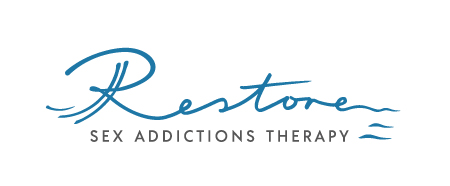







What Is Pornography Addiction?
The problem is pornography doesn’t come with a warning on the tin like cigarettes or gambling do; there’s no hangover. It’s accessible anytime, anywhere, and is the easiest behaviour to keep hidden and secret. This means, that unlike other forms of sex addiction, which may have roots in childhood trauma, you can become hooked on porn simply because of its easy availability and lack of educational resources about the potential risks.
Porn as a stimulus can be so powerfully addictive that it has been called the ‘crack cocaine’ of sex addiction. Being online for half an hour to masturbate is not the same as the person who is online 5 hours every day – this is about the high not the enjoyment. It’s all about dopamine which is the reward centre in the brain. It seeks pleasure and to avoid pain, is easily bored and therefore stimulated by novelty.
This is why someone fighting addiction will watch things they don’t particularly enjoy – dopamine is about wanting, seeking and craving, not liking. Craving demands more novelty and variety. You may notice that you are searching for images that no longer fit with your value system. It’s because like taking any drug, you need more stimulus to get the same result, which is why some enter dangerous territory and cross over to viewing illegal content.
Many people are not aware they’re hooked on porn until it escalates to the point of affecting other areas of life such as relationships, friendships or work.
How Might You Be Affected By Pornography
Physical symptoms
You may notice you are suffering with sexual dysfunctions, such as Erectile Dysfunction (ED); premature ejaculation or anorgasmia. Perhaps you are unable to maintain an erection without viewing porn. You may have put this down to performance anxiety; getting older and a drop in testosterone; or the effects of being on medication such as anti-depressants. Young people in particular are reluctant to see a GP for ED.
Relational impact:
Interest in sex with your partner may have declined and does not hold the same appeal as what you can see on screen. This is what makes pornography addiction so troubling, as reward from a close and intimate relationship distressingly just can’t compete. For some, sexual acting out escalates to cybersex, visiting sex workers or hook-ups.
Psychological impact:
You may notice you are feeling depressed, lethargic and lacking motivation. You may have become withdrawn and socially anxious or avoidant. So instead of feeling connected and supported, you are left with a sense of shame and alienation. If you have been using porn heavily since puberty you may not make the connection between this and symptoms of anxiety and low mood.
What is sex addiction?
Sex addiction is a compulsive, unhealthy relationship with sex or pornography which feels out of control and is causing problems in your life. It’s a craving that seems to be escalating; one that you have tried to stop but been unable to, or you have and then relapsed yet again. This will be despite any negative effect it might be having on your relationships, finances, work, health, or social life. It involves planning, usually with a recognisable pattern in what you do, followed by a remorseful recovery, and a period of dormancy before acting out again.
There are naturally debates as to whether or not an addiction to sex or porn exists, that it is just an excuse for negative choices, such as affairs or hurting others. Of course, this can be the case, but addiction is about behaviours that you wish to stop, but despite trying, have been unable to. The problem does not necessarily lie with the activity itself, instead it is about your relationship with it. Enjoying a drink does not make you an alcoholic, in the same way enjoying any of the sexual activities mentioned below, does not mean you have a problem.
Activities that can fall into the category of sexual addiction include excessive and compulsive masturbation; compulsive use of pornography; having multiple, ongoing affairs; fetishes; exhibitionism; prostitution; voyeurism; chat rooms/online sex and illegal or dangerous sexual practices.
What can I expect from therapy?
I can appreciate what a massive and courageous step it is to seek help for something that is often very misunderstood. Sessions last 50 minutes and our first session will be an assessment. This is to discuss your problems and talk about how you are being affected; I will explain how counselling works and how I might be able to help you; and you can ask any questions you need to.
Usually you would come initially on a weekly basis, and subsequent sessions will involve tools and practical steps to take to overcome compulsive behaviours and to develop a healthier relationship with sex.
This will be done alongside psychoeducation so that you can understand and recognise harmful patterns of behaviours. This will involve noticing triggers so as to intercept and avoid damaging acting out behaviours. This extends to a deeper psychotherapy in exploring what has led to your compulsive behaviours.
Overcoming sex addiction is a process without a quick fix, and usually involves referral to a support group. However, there is no doubt that it is definitely possible to be helped if you are prepared to make the commitment.
What is your confidentiality policy?
I am committed to treating each client with respect and compassion and will keep what you tell me confidential. There are some circumstances where confidentiality may be broken, such as if I am worried that you or someone in your life may be harmed, but I would discuss this with you first. There are occasions when the law requires me to disclose, such as child protection issues, drug trafficking, money laundering, terrorist activities, or if I am subpoenaed by a court of law, for example.
As part of my ethical practice, I talk to a supervisor on a monthly basis, who helps and supports me in my work with my clients. However, my supervisor is bound by the same limits of confidentiality.
Porn addiction falls within the scope of sex addiction and is especially a potential danger for younger people who have grown up with easy access to internet porn. Inevitably this will affect intimacy and what happens down the line with ‘real’ sex and partners.
I make brief notes about my sessions with clients but these records are kept confidential on a computer file which only I have access to, and it’s stored in a locked cabinet. Your name and personal details are kept separate from these coded notes. Under the Data Protection Act you also have the right to see any records kept on you.
My partner is always looking at porn - could they be addicted?
It’s possible they may be addicted to sex or pornography but more information would need to be gathered to effectively assess this.
How much does it cost?
My fee for a 50 minute session is £110 for individuals and £120 for couples. Payment must be made in advance via direct bank transfer and 48 hours notice is required should you need to cancel a session.
Online Counselling FAQ
How might online counselling help?
In the same way as if we meet in person, I will work with whatever is worrying you to find your personal insights and solutions. Any problems that you would consider taking in person to your counsellor, can be dealt with online.
How do I choose my therapist?
You will get a feel for a counsellor from their website which will give you an idea of their way of working, areas of special interest, fees, and qualifications. An ethical practitioner will be a member of a recognised profesional body, and I am an Accredited member of the British Counselling and Pscyhotherapy Association (BACP), and the National Counselling Society (NCS). A therapist should have up to date insurance.
How does it work?
We will establish a convenient time for us both and I ask you to call me. The session is conducted as if we were meeting face-to-face, and will last 50 minutes. If you then wish, we will set the next appointment before ending the call.
Is online-counselling secure and confidential?
As on online therapist anything you relay to me is subject to the same confidentiality boundaries that we would have in place if I saw you face-to-face, and only on rare occasions may it be necessary to involve a third party.
Online therapy is open to interception if someone is determined. You would need to be in a confidential space for sessions so that you cannot be overheard.
I am registered with ICO, an independent public body set up to protect personal information and ensure I comply with the Data Protection Act and GDPR. My entry can be found on the register of data controllers at www.ico.gov.uk
How do I pay?
Payment is via bank transfer and needs to be made 48 hours prior to the session, with your name and session date as reference. I will provide you with the necessary details.




